
Kód: 14123899
'Human Rights Imperialism' or Global Homogenization of Culture? Has the Age of Revolution ended in 1989?
Autor Anonym
Essay from the year 2015 in the subject Cultural Studies - Basics and Definitions, grade: 1,3, Stellenbosch Universitiy, language: English, abstract: After briefly summarizing Fukuyama's theory, the following essay will attempt to ... celý popis
- Jazyk:
 Angličtina
Angličtina - Vazba: Brožovaná
- Počet stran: 20
Nakladatelství: Grin Publishing, 2016
- Více informací o knize

Mohlo by se vám také líbit
Dárkový poukaz: Radost zaručena
- Darujte poukaz v libovolné hodnotě a my se postaráme o zbytek.
- Poukaz se vztahuje na celou naši nabídku.
- Elektronický poukaz vytisknete z e-mailu a můžete ihned darovat.
- Platnost poukazu je 12 měsíců od data vystavení.
Více informací o knize 'Human Rights Imperialism' or Global Homogenization of Culture? Has the Age of Revolution ended in 1989?
Nákupem získáte 102 bodů
 Anotace knihy
Anotace knihy
Essay from the year 2015 in the subject Cultural Studies - Basics and Definitions, grade: 1,3, Stellenbosch Universitiy, language: English, abstract: After briefly summarizing Fukuyama's theory, the following essay will attempt to compare and contrast several aspects of his work to Samuel P. Huntington's 1996 'Clash of Civilizations', in which he strongly opposes Fukuyama's concept of global homogenization and instead argues in favor of "a multi-polar, civilization-divergent course". I will then continue to show post- 1989 examples that question today's salience of Fukuyama's argument and also comment on the difficulties that we face when trying to define 'revolution' in general, invariant terms. The final question that is open to answer is whether or to what extent those recent events can still be considered 'revolutions', if we assume that History has really ended in 1989. Does the term 'revolution' necessarily imply directedness towards the establishment of liberal democracy, or can revolutions also occur in another direction? If the end of History means an end of revolution, what does that make the social changes that occurred after? With the fall of the Berlin Wall and the defeat of communism in Eastern Europe in 1989, "a round of self-congratulations was sparked in the West" as the Western democracies had successfully won the Cold War which further led to the belief in the "universalization of Western liberal democracy" . 200 years after the Great Revolution in France, inspired by secularized enlightenment, managed to end the absolute monarchy of Louis XVI., and paved the way for more democratic governments all throughout Western Europe, Francis Fukuyama proclaimed the end of History, as the world had reached its final destination, "the only coherent political aspiration that spans different religions and cultures around the globe" : liberal democracy. Further developments in international relations, such as the rise of terrorism or the economic success of China's authoritarian regime, however, lead to continued discussions about whether liberal democracy can really be considered to be the peak of all civilizations or whether it was simply Western ethnocentrism that led Fukuyama to believe in the superiority of Western values and Western politics. After all, competing ideologies continue to exist today and as the rise in radical anti- Western movements has shown, America's role in the world remains at best ambiguous.
 Parametry knihy
Parametry knihy
Zařazení knihy Knihy v angličtině Society & social sciences Society & culture: general Social groups
1022 Kč
- Plný název: 'Human Rights Imperialism' or Global Homogenization of Culture? Has the Age of Revolution ended in 1989?
- Podnázev: A Discussion of Francis Fukuyama's Arguments
- Autor: Anonym
- Jazyk:
 Angličtina
Angličtina - Vazba: Brožovaná
- Počet stran: 20
- EAN: 9783668258709
- ISBN: 3668258708
- ID: 14123899
- Nakladatelství: Grin Publishing
- Hmotnost: 54 g
- Rozměry: 254 × 178 × 1 mm
- Datum vydání: 23. August 2016
Oblíbené z jiného soudku
-

Women Who Run with the Wolves
238 Kč -

Freedom Writers Diary
389 Kč -

Think Like a Monk
283 Kč -

Orientalism
323 Kč -
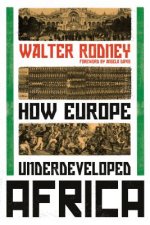
How Europe Underdeveloped Africa
514 Kč -

Desert Flower
278 Kč -

Why Does He Do That?
433 Kč -

Letters to a Young Muslim
303 Kč -

Eros and Mysteries of Love
423 Kč -

Puer Tea
772 Kč -

Life After Darkness
567 Kč -

Womanhood
544 Kč -

JFK - 9/11
738 Kč -

Complete Book of Pilates for Men
464 Kč -

Gypsy Identities 1500-2000
1666 Kč -

Servitors of Empire
498 Kč -

Sword of No-sword
646 Kč -

Colloquial Yiddish
1683 Kč -

Gerotranscendence
3525 Kč -

Northwest Coast Indian Art
753 Kč -
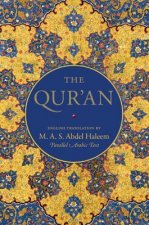
Qur'an
811 Kč -
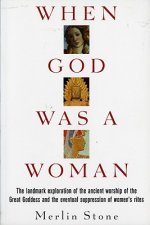
When God Was A Woman
493 Kč -

The Mastery of Love
309 Kč -

Vintage Menswear
456 Kč -

Who Cooked the Last Supper?
427 Kč -

Women Who Run With The Wolves
433 Kč -

The Way of Men
342 Kč -

The Autobiography of Malcolm X
227 Kč -

Second Sex
284 Kč -

Goddesses in Everywoman
303 Kč -

Talking with Female Serial Killers - A chilling study of the most evil women in the world
276 Kč -

Intellectuals and Society
558 Kč -

Women in the Qur'an
480 Kč -

Erotic Bondage Book
364 Kč -

Zami
291 Kč -

Nine Years among the Indians, 1870-1879
615 Kč -

Dark Emu
410 Kč -

Childhood and Society
394 Kč -

Happy City
303 Kč -

The Male Nude
505 Kč -
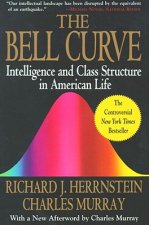
The Bell Curve
464 Kč -

We Should All Be Feminists
196 Kč -

Empire of the Summer Moon
357 Kč -

Radium Girls
276 Kč -

Dance of Anger
276 Kč -

Beauty Myth
357 Kč -
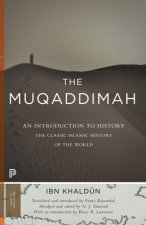
Muqaddimah
540 Kč -

TROUBLEMAKER
376 Kč -

Ladies' Book of Etiquette and Manual of Politeness
382 Kč
Osobní odběr Praha, Brno a 12903 dalších
Copyright ©2008-24 nejlevnejsi-knihy.cz Všechna práva vyhrazenaSoukromíCookies






 Vrácení do měsíce
Vrácení do měsíce 571 999 099 (8-15.30h)
571 999 099 (8-15.30h)